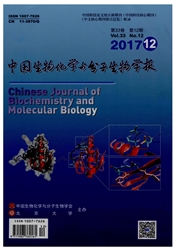

 中文摘要:
中文摘要:
血管生成素(angiogenin,ANG)是首个被发现来源于肿瘤的具有血管生成能力的蛋白质,但其在炎症中的作用机制尚未完全阐明.研究表明,ANG在炎症性疾病的发生发展中起重要作用,并与炎症的调控密切相关,而慢性炎症正是导致肿瘤形成、生长和转移的因素之一.本文以ANG与炎症的关联为基础,结合我们的工作阐述ANG在炎症性疾病特别是肿瘤中的作用和调控机制,明确ANG与蛋白质的相互作用、对信号通路的调控及核内作用是其发挥功能的重要机制,也可能是调控肿瘤炎症的重要机制.因而,深入研究ANG与炎症的关系不仅可加深我们对ANG兼具抗炎、抗新生血管双重功能的认识,更可为炎症性疾病的治疗提供潜在的作用靶点和新的思路和方法.
 英文摘要:
英文摘要:
Angiogenin (ANG) is the first known human tumor-derived protein with in vtvo angiogenic activity, but its role in inflammation has not been fully elucidated. Researches have shown that ANG was important for the development of inflammatory diseases and extensively involved in the regulation of inflammation. Chronic inflammation is one of the leading forces to impact on tumor formation, growth and metastasis. In this review, we focused on ANG and inflammation to discuss ANG and its binding proteins, nuclear function and cellular signaling pathway, emphasizing on the role and regulatory mechanisms of ANG in inflammatory diseases, especially in cancer. The provided information indicated that ANG could be a novel target with double functions on anti-inflammation and anti-angiogenesis, which might help the treatment of inflammatory diseases.
 同期刊论文项目
同期刊论文项目
 同项目期刊论文
同项目期刊论文
 期刊信息
期刊信息
